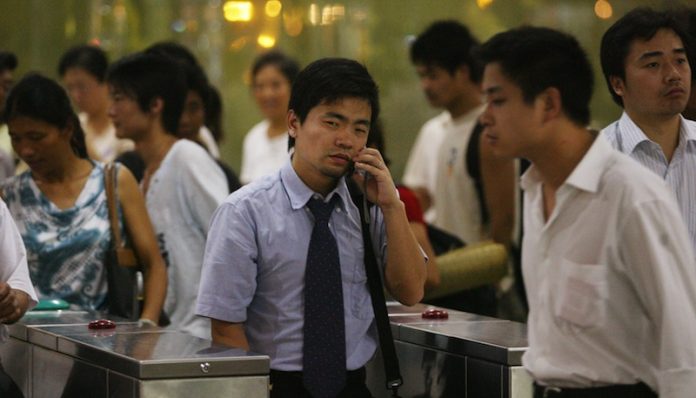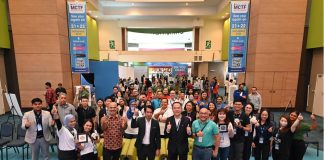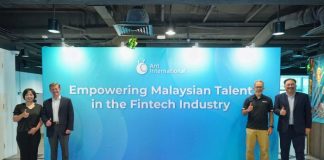LinkedIn, the world’s largest professional network has just revealed its inaugural LinkedIn Opportunity Index in the Asia Pacific (APAC) region where it has more than 153 million members.
The Index is a composite measure that seeks to understand how people perceive opportunity and more importantly, barriers that may prevent them from getting to those opportunities. The research surveyed over 11,000 respondents in nine markets in the Asia Pacific region – Australia, Chinese Mainland, Hong Kong, India, Indonesia, Japan, Malaysia, the Philippines, and Singapore.
Two rapidly developing markets in the region, Indonesia and India take the top two spots on LinkedIn Opportunity Index – driven by the people’s confidence in their economic growth potential, as well as their confidence in gaining access to and pursuing opportunities they identified as important.
On the other hand, the more developed markets such as Japan, Hong Kong and Australia trailed in the Index as people in these markets expressed concerns over economic outlook, and generally felt more cautious about their chances, how they feel about the opportunities they want to pursue, as well as the barriers that may stand in their way.
Key Highlights of LinkedIn Opportunity Index 2018:
● Career advancement, entrepreneurship and learning opportunities matter to APAC, but less optimal finances and networks stand in the way across APAC, there is strong desire to get ahead in life through advancing one’s career, building one’s own business and acquiring new skills. These are the top three opportunity areas for APAC, with each cited by about 15 percent of respondents. On the other hand, the top barriers people felt they needed to overcome in order to access and realise opportunities are one’s financial status (30 percent), followed by lack of a strong network and connections (22 percent). Other roadblocks include a difficult job market (19 percent), lack of required professional skills (18 percent) and lack of direction and guidance (18 percent). In fact, the top three cited barriers for aspiring and current entrepreneurs become more evident with higher percentages compared to all APAC respondents – one’s financial status (48 percent), lack of connection (28 percent) and fear of failure (21 percent). Interestingly, in Japan and the Philippines, factors that are more innate or psychological to people, such as fear of failure and lack of confidence ranked high as barriers to opportunities – almost a quarter of respondents put these barriers in second and third highest spots.
● APAC respondents believe diligence is the currency to get ahead in life While 90 percent of APAC respondents believe in working hard to get ahead in life, an almost equal number feel that knowing the right people or having the right connections (85 percent) and having equal access to opportunities (83 percent) are as important. Close on the heels of these factors are willingness to embrace change and level of education, both at 81 percent of respondents. 2 in 3 respondents in APAC feel “good luck” also play a part in getting them ahead in life. Within the region, people in Hong Kong (77%), Japan (76%) and Chinese Mainland (71%) feel most strongly about this.
● Work-life balance is an aspiration of how APAC respondents embark on opportunity A significant 40 percent of the respondents in APAC indicated that having good work-life balance as their ultimate aspiration of how they would embark on opportunity. This is strongly echoed by respondents in Singapore (48 percent), Australia (46 percent), Malaysia and the Philippines (both at 44 percent). More than 35 percent of the respondents also want to able to utilise their skills. 30 percent cite “learning a new skill” and 23 percent “learning a new technology” as their aspiration.
In an environment where the prospect of being displaced from one’s job due to the impact of AI/automation and other shifts in the labour ecosystem, respondents also recognise that with jobs rapidly evolving, they need to upskill to stay relevant. In Indonesia and the Philippines, more than half of respondents consider “starting my own business” as their definition of opportunity. In contrast, respondents in Australia (13 percent), Hong Kong (13 percent) and Japan (7 percent) are least likely to embark on entrepreneurial ventures. In Singapore, only 24 percent of respondents want to start their own ventures. This demonstrates the thriving entrepreneurial culture and spirit amongst developing economies.
Commenting on the Index, Dr Tan Ern Ser, Associate Professor of Sociology from National University of Singapore said, “Opportunity is essentially a means to an end, and as we have differing goals and aspirations in life, we would probably see the opportunities available to us from different perspectives and with different priorities. It’s also interesting that LinkedIn Opportunity Index revealed an underlying pattern: greater optimism from developing markets, and less from the developed markets. This raises the question, should developed markets therefore chase a ‘good-enough life’ rather than a ceiling-less good life? This question is quite pertinent as the study suggests that work-life balance is an aspiration for most people in APAC.”.
LinkedIn commissioned independent market research firm, GfK to conduct this study between September and October 2018. The survey was conducted among 18 to 60 year olds across 9 markets via online interviews. The survey had more than 11,000 respondents.


































